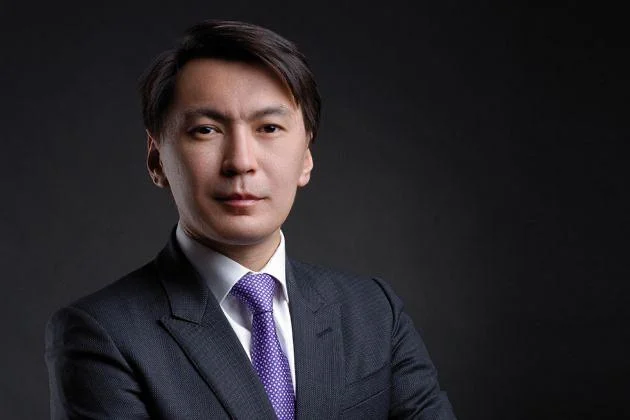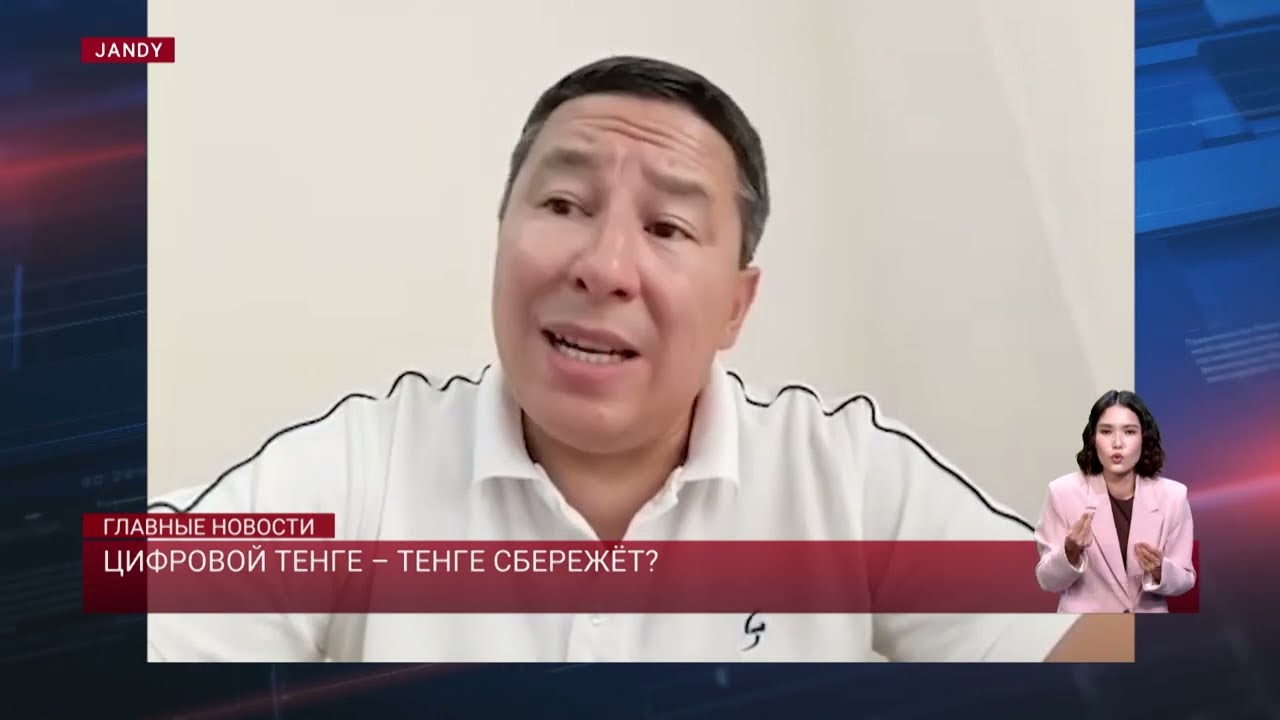The state is still involved in the economy
In May of this year, the Presidential Decree "On measures to liberalize the economy" was issued. The document is aimed at ensuring freedom of entrepreneurship through the development of competition, reducing state participation in the economy and reducing business costs.
The decree sets the main directions for further economic liberalization and includes the following main measures:
1. Reducing the share of the public sector in the economy through privatization and preventing the growth of state-owned enterprises.
2. Improving the corporate governance of Samruk-Kazyna JSC.
3. Ensuring equal conditions and opportunities for all market participants, suppression of non-competitive actions. Ensuring fair competition in financial markets.
4. Implementation of the fundamental principles of freedom of entrepreneurship.
Within the framework of the decree, the National Office for Privatization was established under the Agency for the Protection and Development of Competition of the Republic of Kazakhstan. Its task is to develop criteria for state assets to be privatized and to form an appropriate list.
Recall that over the past years, the economy of Kazakhstan has experienced more than one wave of demonopolization of the state and privatizations of state property, which have not always been smooth and effective. To carry out such a process efficiently, it is important to make painful and not always popular decisions (for example, raising tariffs for housing and communal services), but at the same time it is important for the state not to create competition for the market.
Recently, at the X Eurasian Antimonopoly Forum, Business Ombudsman of Kazakhstan Kanat Nurov stated: for effective liberalization of the economy of Kazakhstan, a direct ban on competition between the state, state-owned and quasi-state enterprises with private business is necessary.
"The legislation says that if there is a lack of competition in the market, the state has the right to enter the private sectors of the economy.
But we need to look for other ways – to support private businesses that want to go there. Otherwise, political monopolies will be created again. Private business will always lose to quasi-state business and state business in terms of administrative resources, because the state is behind them. And in our specific legal conditions, this is definitely a loss for private business and the economy. It is impossible to build another plant nearby at the expense of quasi-state funds if a private business is already building it," Kanat Nurov stressed.
He is also sure that it is important to regulate natural monopolies primarily through tariffs, but at the same time it is desirable to free them from profitability control so that they use the resulting profits to modernize networks, pay bonuses and other things so that they are interested in their effectiveness.
Of the 36 measures of the Decree, 24 are planned to be completed this year. In particular, the Ministry of National Economy imposed a moratorium on the creation of quasi-public sector entities, revised the procedure for forming the board of directors of the Samruk-Kazyna Fund, updated its Corporate Governance Code, and also introduced a ban on attracting state financing from the National Fund on non-market terms for quasi-public sector entities.
"Of course, there are sectors of the economy where it is critically important for the state to be present, especially when it comes to strategic sectors important for national security, as is practiced all over the world.
Nevertheless, we are convinced that in Kazakhstan the dominance of the quasi-public sector represented by the Baiterek and Samruk-Kazyna holdings, which are key operators of the state in the economy, strongly hinders the development of real market competition and reduces the overall investment attractiveness of the country," said economist Galymzhan Aitkazin.
As an example of ineffective management, he cited the case of JSC National Company Kazakhstan Temir Zholy, where the issue of institutional separation of the transportation business from the railways (natural monopoly) has long been overdue.
The recently published National Report on the management of state Assets and the quasi-public sector for 2023 reports that the total assets of the state and the quasi-public sector (the value of state property + the book value of KGF assets) amounted to over 88 trillion tenge, with Kazakhstan's GDP of about 120 trillion tenge last year. The comparison is not perfect, but it shows the scale of state participation in the economy, economists say.
Process brakes
Askar Kysykov, director of the TALAP Center for Applied Research, also noted in a conversation with TAJ.report: despite the priorities announced by the authorities, the state's share in the economy remains high.
"There are different indicators of state participation in the economy: in the production of goods and services, intermediary services. This is direct competition with the private sector, and it is necessary to leave the relevant industries first.
There are strategic industries: oil production, energy, uranium mining, railways, where the presence of the state is necessary. But in many other areas where medium and small companies operate, there are a lot of state and quasi-state structures. In the same consulting. For example, as a research organization, we compete with many state-owned companies that receive billions of dollars in financing," the economist said.
According to him, many associate the liberalization of the economy only with a decrease in state participation in it. But this is not the case - in all countries there is a certain state involvement. Yes, it is generally believed that it is ineffective in most cases, and this is a fact, but there are also reverse examples, for example, in China.
"Kazakhstan has been talking about liberalization for a long time, the main direction is related to privatization. In recent years, this process has slowed down significantly. In 2021, 193 facilities were withdrawn for privatization, in 2023 - 21 facilities worth 6.8 billion tenge. This year there are three facilities worth 6.4 billion tenge. This is critically small.
There is a so-called reduction in the share of state participation through the withdrawal of shares of state-owned companies for IPOs, but only up to 10% of shares are withdrawn from us, and this is done - for the most part - on the domestic market. Shares are bought mainly by UAPF and financial organizations, to a lesser extent by individuals, and the effect of the IPO is insignificant, since the effectiveness of company management does not change," Kysykov emphasized.

Askar Kysykov - Director of the TALAP Center for Applied Research
And this is the key problem of the Kazakh public sector. And management is ineffective because officials are at the helm of companies with state participation.
Samruk-Kazyna is a holding company that owns major state assets and is managed by the government: the chairman of the board of directors is the Prime Minister, the Board of Directors itself includes officials.
As a result, the self-government bodies of the "UK" perform the tasks that the Cabinet of Ministers sets for it. And these tasks often contradict economic expediency, respectively, contradict the task of increasing the value of assets and profitability of the organization. Such a direct conflict of interest," the economist stressed.
He stated: in the Republic of Kazakhstan, the quasi-public sector is more focused on fulfilling social tasks than on increasing the profitability of these assets. But in the right scheme, all state assets of the company should be aimed at making a profit, which then goes to the budget through dividends, and from there to social expenses.
"Now, many expenses are borne directly by the UK. According to the reports of the holding, the volume of cross-subsidization within the "UK" exceeds 1.2 trillion tenge. This is a huge amount, which concerns reduced tariffs, cheap Kazpost services, passenger transportation and so on.
The whole system, in fact, works inefficiently – I repeat, because they are trying to solve social problems through the quasi-public sector. But they must be resolved through the budget, transparently, approved by parliament, and so that the public can see," the expert said and added that with an increase in the same tariffs, targeted social assistance should be increased directly.
In the current format, privatization does not increase the efficiency of managing state assets, the economist believes. Although the improvement of corporate governance is mentioned in the presidential decree on economic liberalization. And this should be done by changing the composition of directors - attracting professional managers.
The guillotine will help us
The second major area of liberalization is improving regulation. It is excessive in our country, each branch of the economy is regulated by the branch ministry, akimat.
"An official has two tools of influence in his industries: to "knock out" more budget and come up with new rules. One thing is piled on top of another, and as a result we get an extremely complicated system of business regulation.
According to the latest audit, the number of business requirements exceeds 120 thousand. An attempt to make regulation from scratch, to completely replace the old regulation with a new one, was not successful. Cosmetic changes were made, some of the requirements were cut, but
the regulatory system itself remained the same.
I think it is necessary to apply a rigid guillotine and "chop off" the old requirements, replacing them with new ones developed with the participation of the business itself and taking into account international experience," Askar Kysykov said.
The third direction in the issue of economic liberalization is public procurement, which is also mentioned in the presidential decree. A new relevant law will be adopted, the concept of "denationalization of procurement" will be introduced.
"Many economists say that liberalization is the key to the success of the state, to economic growth and development. It is impossible to go too far with liberalization in strategic sectors where state participation should be effective.
And we must understand that liberal reforms are very painful. Liberal reforms suggest that there will be many losers due to rising tariffs and prices, and job losses. We cannot carry out such transformations until our social support system is broken, until we can guarantee citizens protection from poverty and a minimum income. The state social support system should multiply its efficiency so that as little as possible is affected by economic liberalization, and better yet, not a single Kazakhstani family," the head of the research center is convinced.
He added that the system of providing targeted social assistance measures should be rebuilt: new criteria are needed, a proactive approach, an increase in the amount of assistance, a more digital format, without unnecessary paperwork.
"Now 80 billion tenge per year is allocated for all targeted social assistance in the country - these are pennies for a multi-trillion budget.
Although this should be the number one priority of our budget, if we are talking about a socially oriented state. The budget should provide for spending on poverty reduction, protection of families with children from the negative effects of economic liberalization," the economist said.
Approaching the market
The head of Kursiv Research Sergey Domnin, in an interview with TAJ.report, noted: the decree on measures to liberalize the economy identifies the most important areas of economic reforms, denationalization of the economy, as seen from the Akorda.
"An important place in the decree is occupied by the transition to market pricing in the oil and petroleum products markets, as well as the rejection of cross-subsidizing tariffs for housing and communal services.
Over the next three years, the authorities of the Republic of Kazakhstan plan to bring prices for petroleum products within the country closer to prices in border economies. This approach, firstly, will reduce hidden subsidies to consumers at the expense of oil companies, including KazMunaiGas, eliminate various gray schemes around fuel, and secondly, remove the problem of fuel flow abroad," the economic observer noted.
It is also planned to raise tariffs in the energy sector, making investments in the sector competitive, introducing an investment component, which will relieve the budget from the costs of restoring the CHP.

Sergey Domnin - Head of Kursiv Research
"For QazaqGaz, the approximation of tariffs to the market price will mean the cessation of subsidizing consumers through exports, the volume of which will be reduced, and very soon this scheme will not work.
In these sectors, changes are critically important, since the continuation of hidden subsidies ultimately leads to an increase in treasury spending at a time when it is increasingly difficult for the government to reduce the budget," Domnin continued.
It is worth noting that we are not talking about the complete privatization of large state assets and the withdrawal of the state from those industries where it is present as a player through national companies, the expert said.
"Astana understands that it is not rational to carry out large-scale privatization, giving up control over national companies: only a private monopoly can be worse than a state monopoly. The government is trying to bring market pricing back to the energy markets, which will ultimately allow it to spend less on supporting the sector in the long term," the source believes.
Appetites have been tempered
The topic of economic liberalization was also discussed by experts from the analytical center Halyk Finance. As the head of the AC Madina Kabzhalyalova stressed, the relevant presidential decree was issued on time, but there has been no progress in six months since its release.
Many deadlines for specific processes have already expired, but there is no information on the progress of the execution of the instructions of the head of state in the public domain.
This includes the instruction to the government and the National Bank to ensure the introduction of a ban on attracting state financing from the National Fund on non-market (preferential) terms for quasi-public sector entities by September 1, 2024; revision of the procedure for forming the composition of the boards of directors (supervisory boards) of Samruk-Kazyna, its subsidiaries and affiliates by July 1, 2024; by September 1, 2024 - updating the composition of the boards of Directors (supervisory boards) of the Fund, its subsidiaries and affiliated companies by holding competitions to select independent directors (independent members); taking additional systemic measures by August 1, 2024 to reduce the possibility of the Fund's interference in the operational activities of its subsidiaries and affiliated companies, including personnel decisions, procurement and production processes; revision of the Fund's regulated procurement system by August 1, 2024, together with the National Chamber of Entrepreneurs "Atameken", the Anti-Corruption Agency and the Agency for the Protection and Development of Competition (AZRC), taking into account increased transparency of processes and an increase in the share of domestic value.
At the discussion, the chairman of the APDC (The Agency for Protection and Development of Competition of the Republic of Kazakhstan) the agency is one of the initiators of the decree on economic liberalization) Marat Omarov noted that they are doing a good job of limiting private monopolies and reducing operators. But the work rests on the structure of the economy and the critically high participation of the state in the economy.
"There is a reluctance of government agencies to delve into approaches to privatization. Sectoral central government agencies put up barriers to entrepreneurs, which is a common thread in public procurement, project financing and attracting investments.
The presidential decree on economic liberalization stated the need to accelerate the privatization process. The National Office for Privatization at the ( selected more than 1,140 companies for privatization, conducted a primary analysis of commodity markets, where more than 500 enterprises are involved. By the end of the year, a list of enterprises to be privatized will be finalized, which we will transfer to the modernization commission, then the pool will be approved by the Supreme Council for Reforms and the president," Omarov said.
He noted that the imposed moratorium on the creation of quasi–public sector entities strongly demotivates ministries and the quasi-public sphere to create operator organizations - "appetites have already moderated."

Marat Omarov - Chairman of the Agency for the Protection and Development of Competition of the Republic of Kazakhstan
"Issues of deregulation, norms for the abolition of marginal prices for fuels and lubricants (retail) are also being implemented. Petrosun LLP, which previously controlled about 50% of the fuel market, was returned to the structure of KMG, and now the wholesale fuel market is 100% controlled by the state. The price limits will be abolished.
The changes will also affect the market of medicines. The National Center for the Examination of Lex means has fully digitized the submission of applications from domestic pharmaceutical enterprises for the formation of a marginal price.
The third direction of the decree is the decriminalization of certain types of violations of antimonopoly legislation. Now criminal liability is imposed only for anti-competitive agreements in cartels," the head of the APDC (The Agency for Protection and Development of Competition of the Republic of Kazakhstan) said.
Privatization Games
Saltanat Satzhan, Manager of Samruk-Kazyna JSC for Development and privatization, said that the company manages assets worth more than $81 billion.
"Our goal is to maximize the long-term value of assets and
attracting foreign direct investment. SK has 10 large assets, of which 7 companies are listed on the market with a total capitalization of $31 billion. KTZ is not on the market yet, but we see potential, and the company is in the plan of privatization for 2025. But an investor will never buy a company without an attractive history, and in the case of KTZ, fair tariffs are needed. With the same QazaqGaz, the problem with tariffs in the domestic market has not yet been solved - we are working at a loss," Satzhan said.
According to her, since 2010, SK has decreased by 600 companies, now the fund structure includes 300 companies.
"We are implementing a comprehensive privatization plan until 2025, more than half of the assets have been privatized. I am often asked when we will sell Qazaq Air, but it is a question of price. For 1 tenge, I can sell it to you, and you will probably buy it. But we don't just want to sell, we want a good investor to come in.
In general, the liberalization of the economy should begin with the liberalization of tariffs," the representative of the UK believes.
Murat Temirkhanov, Advisor to the Chairman of the Board of Halyk Finance, commenting on her speech, noted: analysts have a feeling that there is no comprehensive approach to privatization in the country.
"KTZ, Samruk Energy, QazaqGaz have been on the privatization list for 10 years and they are going to carry out reforms for all 10 years. And when will they become business-attractive?..
SK itself says that it is losing 1.2 trillion tenge of lost income on tariffs for gasoline, electricity, and railways. It's been going on for years. But there is no comprehensive approach to privatization. Privatization is 10% of KMG, and a drastic reduction in the share of the state in the economy. And 10%, and even more so in the local market, is a game of privatization," the financier stressed.
 Murat Temirkhanov - Advisor to the Chairman of the Board of Halyk Finance
Murat Temirkhanov - Advisor to the Chairman of the Board of Halyk Finance
Moreover, the state is increasing its share in enterprises (CHP, for example), it is also unclear how the NPP will be in this regard. That is, again, the state is investing money, strengthening the reverse privatization process.
"KTZ's first restructuring program was excellent, they were going to leave only the main lines to the state, and give the rest to the private sector.
And now I have heard again that they want to leave the monopoly on the transport and logistics function, 10% will be sold again, which will not be privatization," Temirkhanov said.
The problem of the current model of Kazakhstan's development is in "state capitalism" based on the distribution of oil rents in the economy. "Manual" and anti-market (command and administrative) methods of managing the economy and distributing natural, financial, labor and other resources in it are used.
"The state apparatus is extremely bloated, supported by an influential quasi-public sector, which actively - and negatively - interferes with market relations in the economy.
The largest key companies in the country are owned by the state. They dominate the economy and receive the vast majority of subsidies, benefits and preferences from the state, while remaining ineffective in many cases.
In addition, there is an extremely small share of small and medium–sized businesses in the country - we are told about the share of SMEs in the economy at 37.7%, but for this calculation only the criterion of the number of people in SMEs is taken, and the company's turnover factor is not taken into account. According to our calculations, the real share of SMEs in the country's economy is only 15%," Murat Temirkhanov said.
In the West, this figure reaches 60%, it is from SMEs that the middle class comes out. This class has been growing quite slowly in the last ten years.
"And the programs for the development of SMEs are not reference ones -
we have only 11% of business lending from GDP. It is necessary to cry," the financier added.
Political will is needed
Separately, he focused on unfair competition in business lending.
"The decree on liberalization notes that by the end of 2028 it is necessary to make a phased transition from commodity-specific subsidies to concessional lending, which means the continuation of unfair competition in the financial market on the part of the state.
In our opinion, it is necessary to immediately stop lending to businesses and mortgage lending at below-market rates. If the government wants to help a certain sector of the economy with cheaper financing, then it can do this without disrupting market relations in the financial system," the expert said.
He also stated that since the release of the decree on economic liberalization in May until today, there has not been a single (!) government meeting on this topic.
And in response to the words of the speaker from the UK about the high standards of the fund's work and compliance with OECD standards (where we strive), Temirkhanov said that they do not correspond to reality.
"The state intervenes and decides for the company what to build, what to do. And the fact that the chairman of the Council of Ministers of the UK is the Prime Minister is a gross violation of OECD standards," the analyst said.
Economist Galymzhan Aitkazin, in turn, noted that in matters of economic liberalization, we rest on the political component.

Galymzhan Aitkazin - economist
"Any state participation in the economy is related to the functions that the government imposes on agents. This is a well-known problem
of the principal agent.
It is necessary to separate the government from Samruk Kazyna, which is "cutting dividends" under the pretext of supporting the economy, construction and others. It has already been announced that the Otbasy Bank will be brought to the market - this is ridiculous, especially given its conversion into a development institute.
In general, the national management holding Baiterek and Samruk are two large pockets of the government, opaque, strongly distorting market processes, pricing, and subsidies.
We need the political will to liberalize, the rest is just talk. And we need to start with the big players," the economist concluded
Author: НАЗГУЛЬ АБЖЕКЕНОВА
Source: https://taj.report/liberalization



